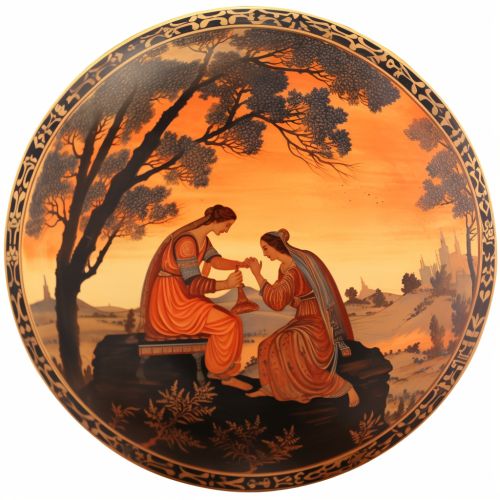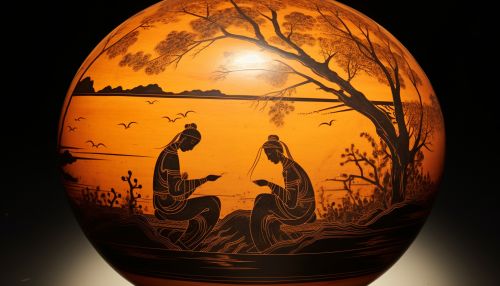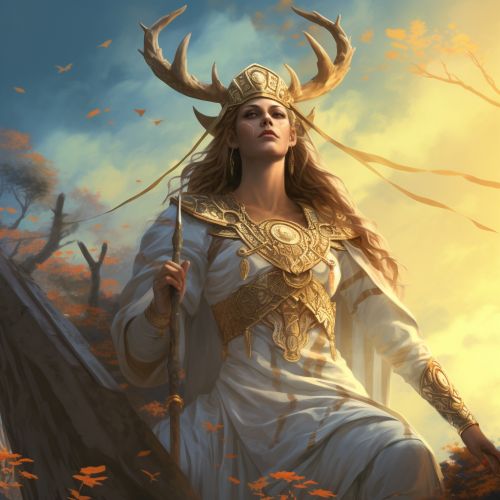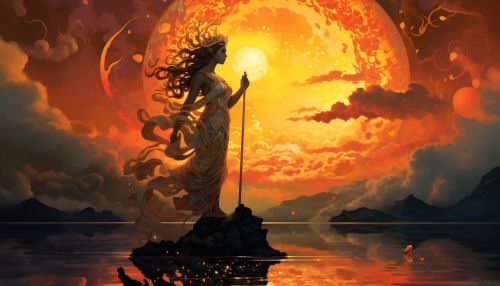Mythology
Origins of Mythology
Mythology, a term derived from the Greek word 'mythos' meaning story, and 'logos' meaning word or speech, is a collection of traditional stories that address the various aspects of human existence, the natural world, and the cosmos. These stories, often known as myths, are deeply embedded in the cultural and religious fabric of societies and serve as a means of understanding and interpreting the world.


Myths are not just simple stories; they are complex narratives that carry profound truths about the human experience. They are often symbolic and metaphorical, allowing for multiple interpretations. They are also deeply intertwined with religious beliefs and rituals, providing a framework for understanding the divine and the sacred.
Types of Myths
There are several types of myths that serve different functions within a society. These include:
- Creation myths: These myths explain how the world and everything in it came into being. They provide an explanation for the origins of the universe and the human race. Examples include the Genesis story in the Bible, the Big Bang theory in modern science, and the Dreamtime stories of the Australian Aborigines.
- Hero myths: These myths tell the stories of heroes who undertake great quests and overcome significant challenges. These heroes often possess extraordinary abilities or qualities and their stories serve to inspire and instruct the members of a society. Examples include the stories of Hercules in Greek mythology, Rama in Hindu mythology, and Spiderman in modern popular culture.
- Trickster myths: These myths feature a clever and deceitful character who uses cunning to get what they want. The trickster is often a source of humor and their stories serve to entertain as well as to teach moral lessons. Examples include the stories of Loki in Norse mythology, Anansi in African mythology, and Bugs Bunny in modern popular culture.
Mythology in Different Cultures
Mythology is a universal phenomenon and can be found in every culture around the world. Each culture has its own unique set of myths that reflect its beliefs, values, and experiences.
Greek Mythology
Greek mythology is one of the most well-known and widely studied mythologies in the world. It is a collection of stories about the gods, heroes, and creatures of ancient Greece. These stories were used to explain natural phenomena, teach moral lessons, and justify religious practices.
Norse Mythology
Norse mythology is the body of myths of the North Germanic peoples, stemming from Norse paganism and continuing after the Christianization of Scandinavia. The tales include gods, giants, and heroes, such as Odin, Thor, and Loki.
Hindu Mythology
Hindu mythology is a large body of traditional narratives related to Hinduism, including tales about gods and goddesses, heroes, and cosmic events. The myths often illustrate moral values and provide context for rituals and religious practices.
Modern Interpretations and Uses of Mythology
In the modern world, mythology continues to play a significant role in various aspects of society. Myths are often used in literature, art, and film to explore complex themes and ideas. They also continue to influence religious and philosophical thought.


